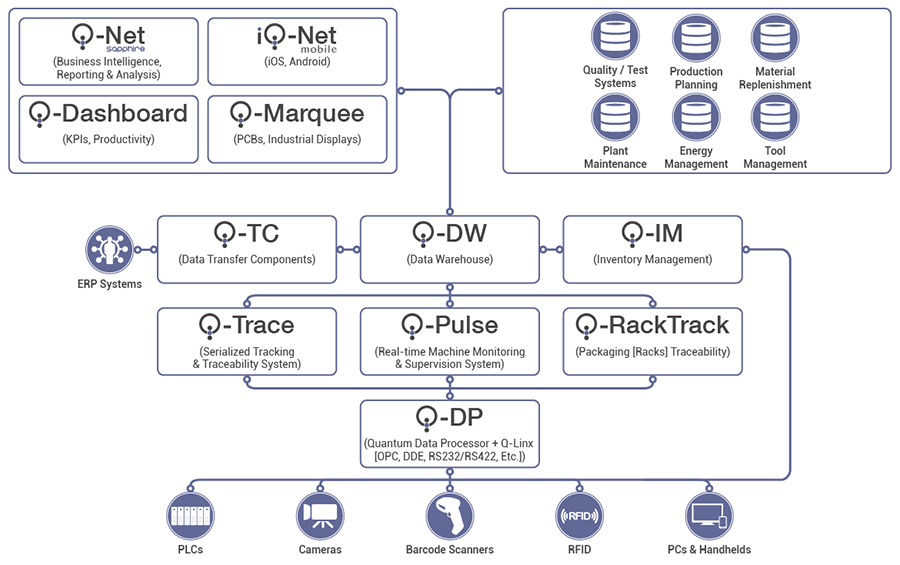Manufacturing Products @ a Glance
Q-Net Report (Sapphire)
Business Intelligence to the extreme! Create custom reports easily and effectively, from any database management system!
read moreQ-Trace
Serialized Tracking, Traceability, or Birth History (whatever you call it), Q-Trace performs the function.
read moreQ-Pulse
Q-Pulse provides tools to measure and monitor the "health" of your machines and processes in real-time.
read moreQ-Data Warehouse
Q-Data Warehouse helps you consolidate your data into a central repository for efficient data mining and custom reporting.
read moreQ-Inventory Mgmt.
Manage your material flow and add efficiency to your in-plant logistics.
read moreManufacturing Execution Systems - a brief introduction
Manufacturing Execution Systems (MES) are computerized systems used in manufacturing, to track and document the transformation of raw materials to finished goods. MES provides information that helps manufacturing decision makers understand how current conditions on the plant floor can be optimized to improve production output. MES works in real time to enable the control of multiple elements of the production process (e.g. inputs, personnel, machines and support services).
MES may operate across multiple function areas, for example: management of product definitions across the product life-cycle, resource scheduling, order execution and dispatch, production analysis and downtime management for overall equipment effectiveness (OEE), Product Quality, or materials track and trace. MES creates the "as-built" record, capturing the data, processes and outcomes of the manufacturing process. This can be especially important in regulated industries, such as food and beverage or pharmaceutical, where documentation and proof of processes, events and actions may be required.
The idea of MES might be seen as an intermediate step between, on the one hand, an enterprise resource planning (ERP) system, and a supervisory control and data acquisition (SCADA) or process control system on the other; although historically, exact boundaries have fluctuated.
"Manufacturing Execution Systems [help] create flawless manufacturing processes and provide real-time feedback of requirement changes," and provide information at a single source.
Some benefits of MES implementation:- Reduced waste, re-work and scrap, including quicker setup times
- More accurate capture of cost-information (e.g. labor, scrap, downtime, and tooling)
- Increased uptime
- Incorporate Paperless Workflow Activities
- Reduced inventory, through the eradication of just-in-case inventory
Quantum's MES Approach

